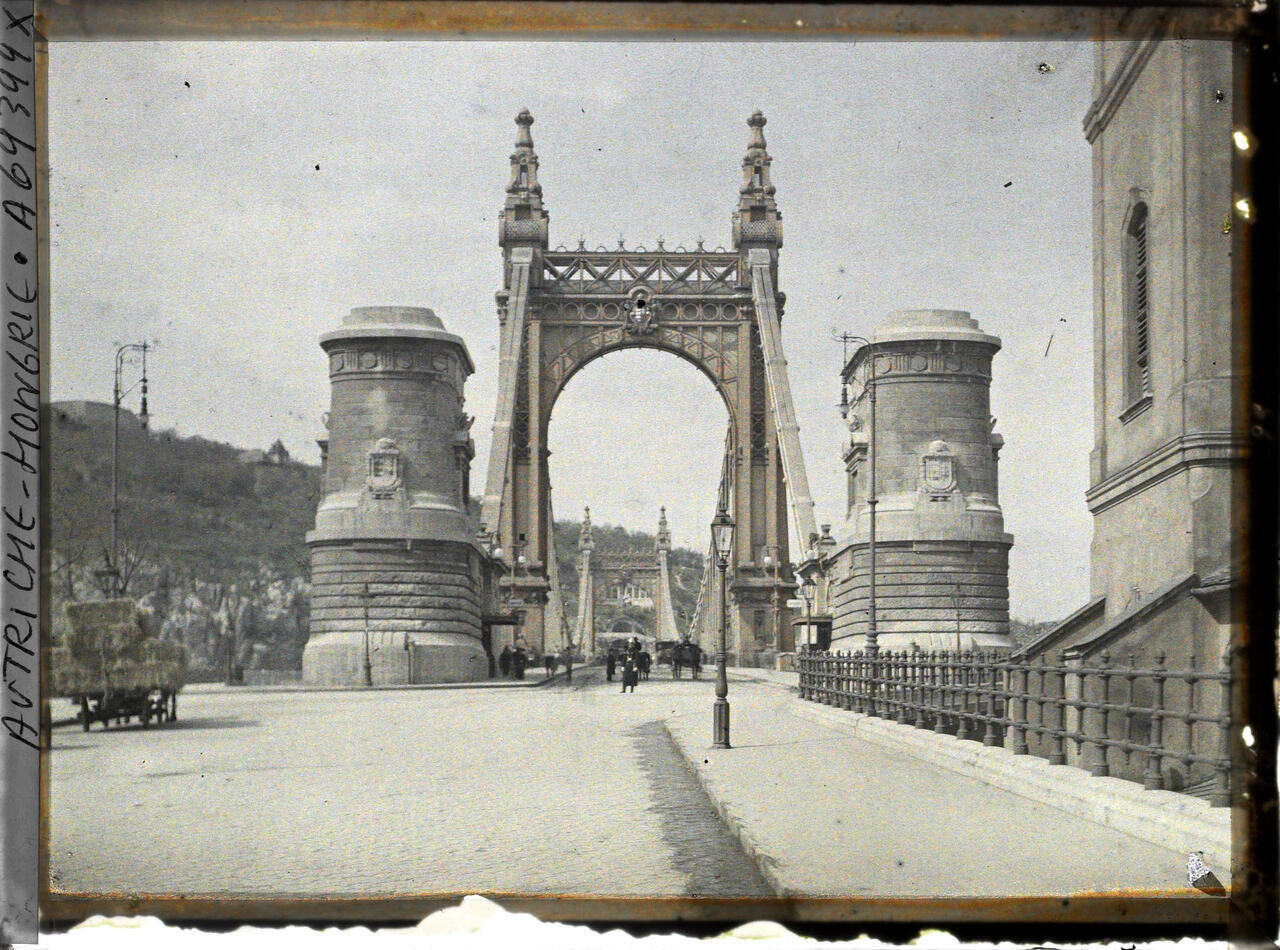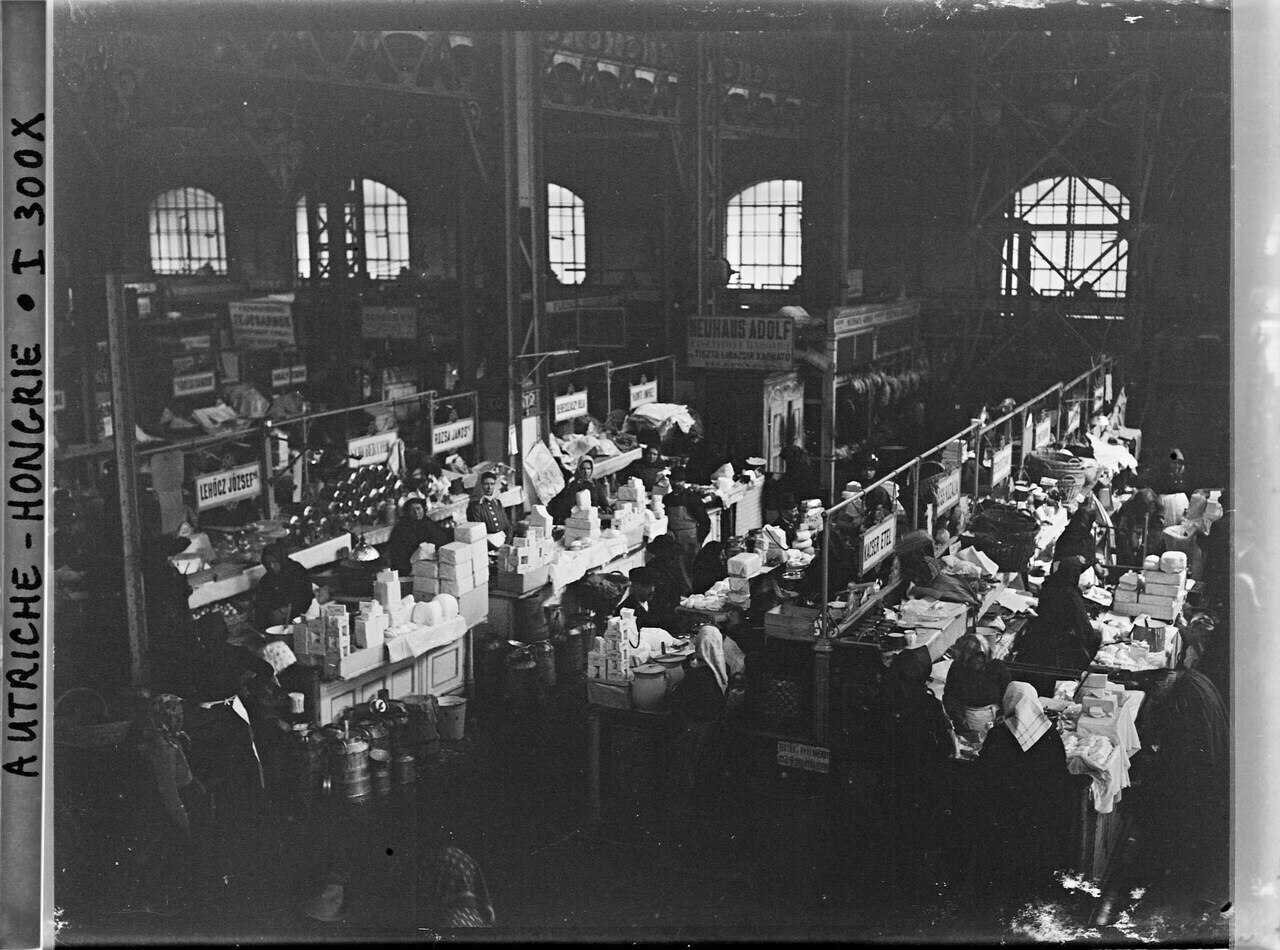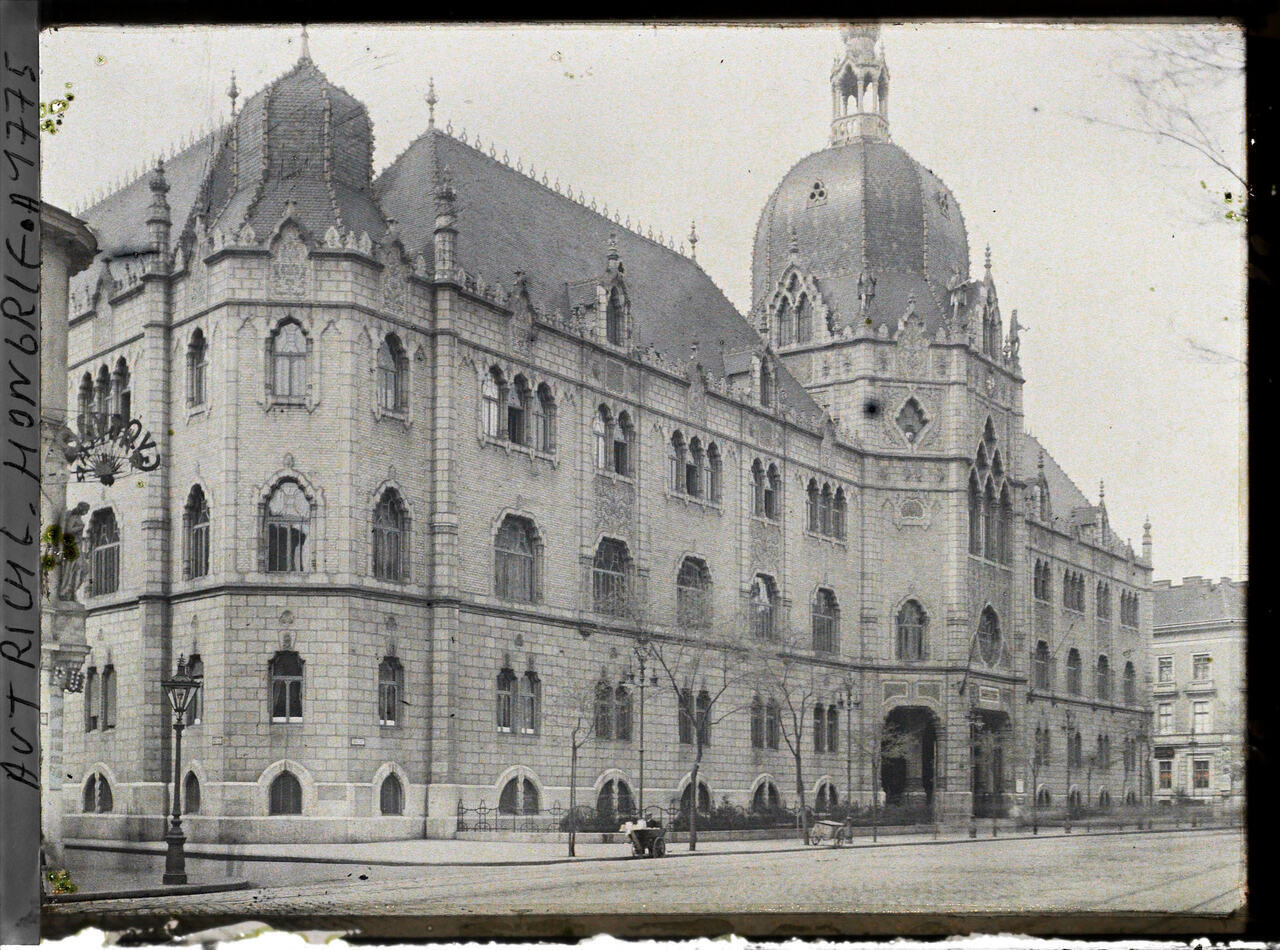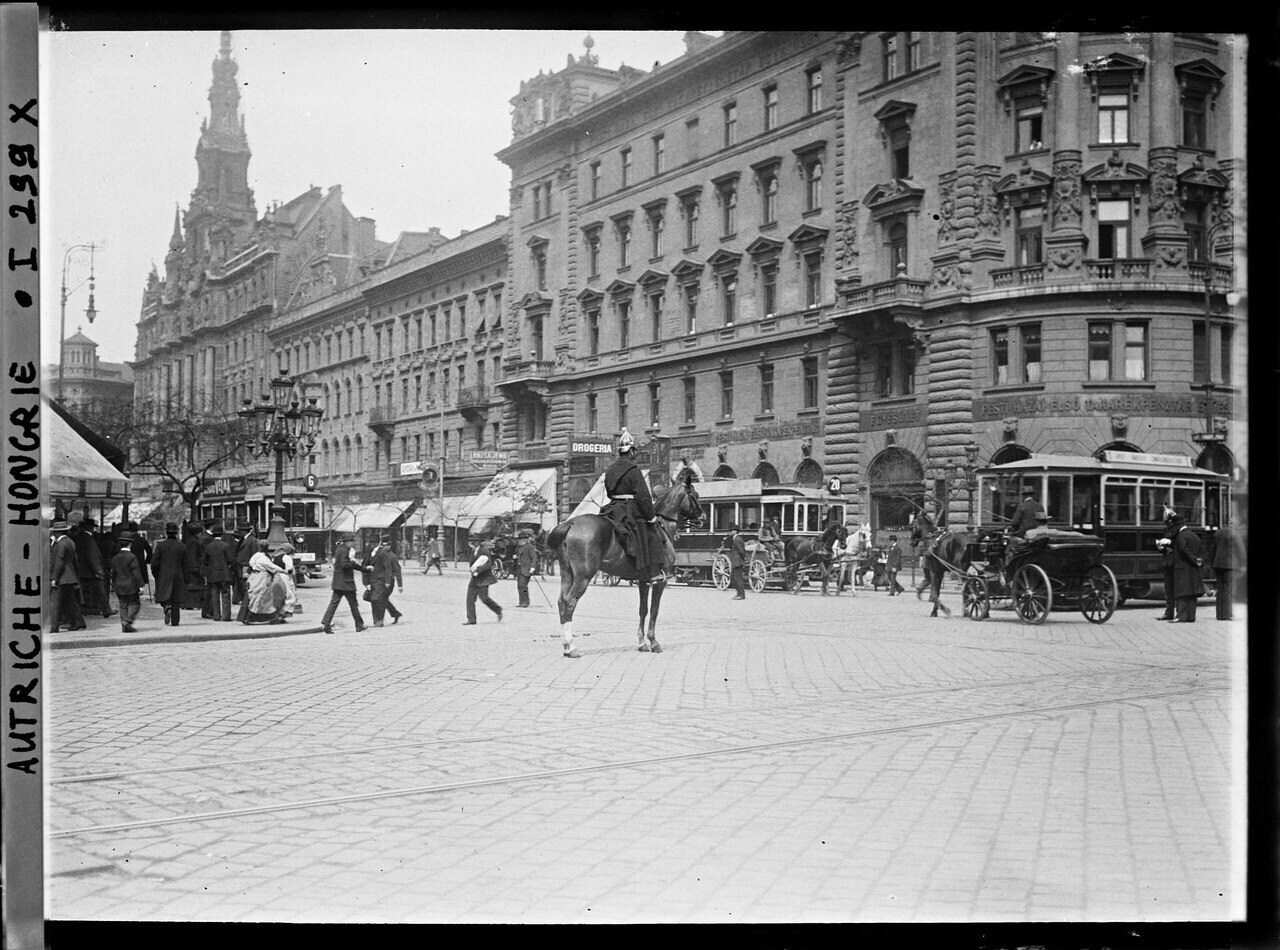Tens of thousands of archive photographs from a museum in France have recently been made publicly available. Among them are some taken in Budapest in 1913. They were shot by Auguste Léon, a French photographer who photographed the Hungarian capital and other sites as part of the Archives of the Earth programme. Check out some of his breathtaking photos in our article!
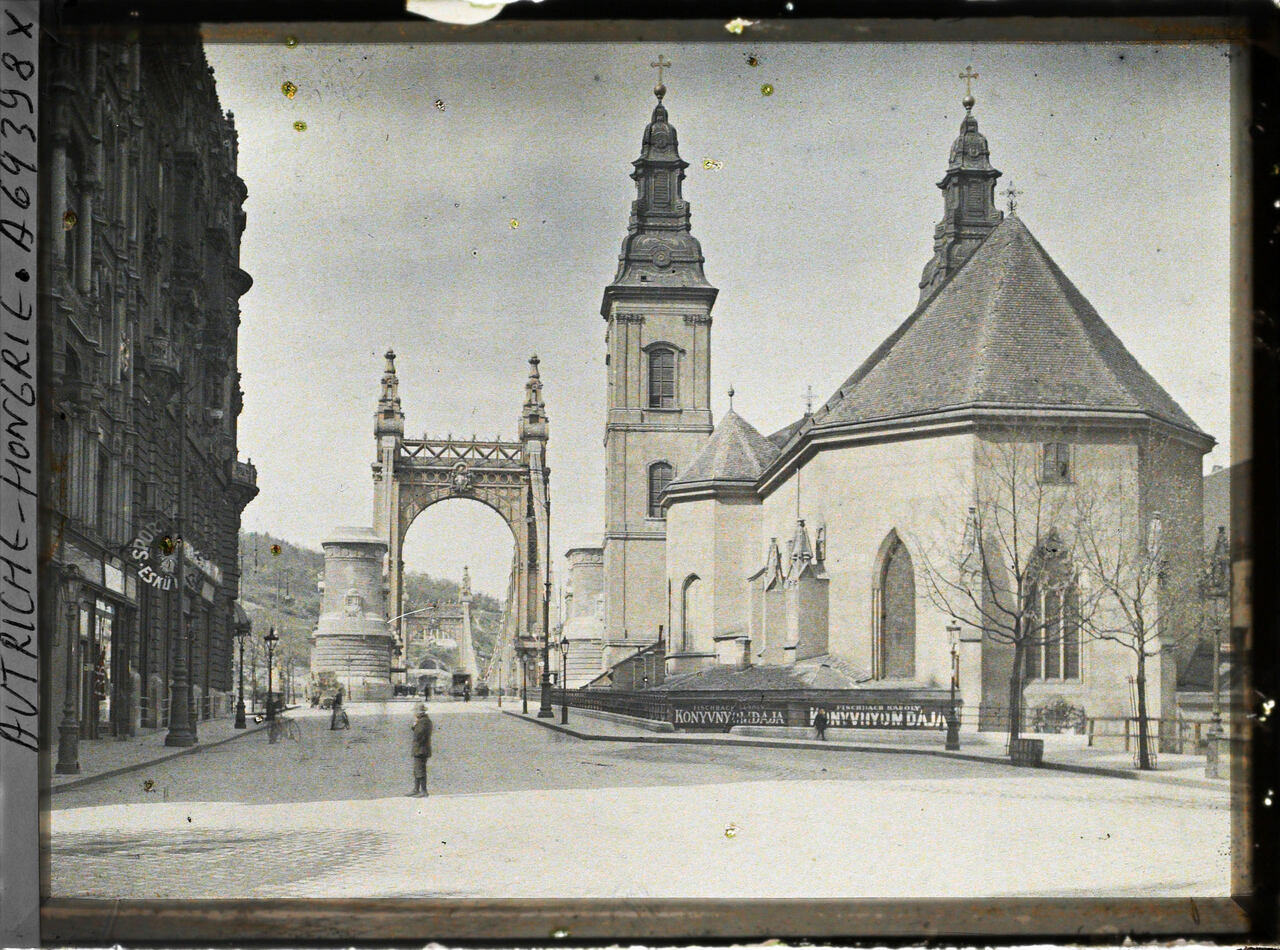
The Achives de la Planète programme
The Albert Kahn Museum in Boulogne-Billancourt, near Paris, has made tens of thousands of old photographs available to the public. The French museum’s collection is based on photographs taken under the Archives de la Planète (Archives of the Earth) programme. Between 1908 and 1931, 72,000 colour photographs were taken in 50 countries around the world, pestbuda.hu reports. The aim was to capture and document human cultures around the world.
The ambitious undertaking was the idea of French banker Albert Kahn, who financed it himself. His aim was to show what the Earth was like at the beginning of the 20th century. He wanted to capture and immortalise the human-inhabited world. Kahn hired two photographers, including Auguste Léon, who also photographed Budapest. The programme officially began in 1912, pestbuda.hu writes.
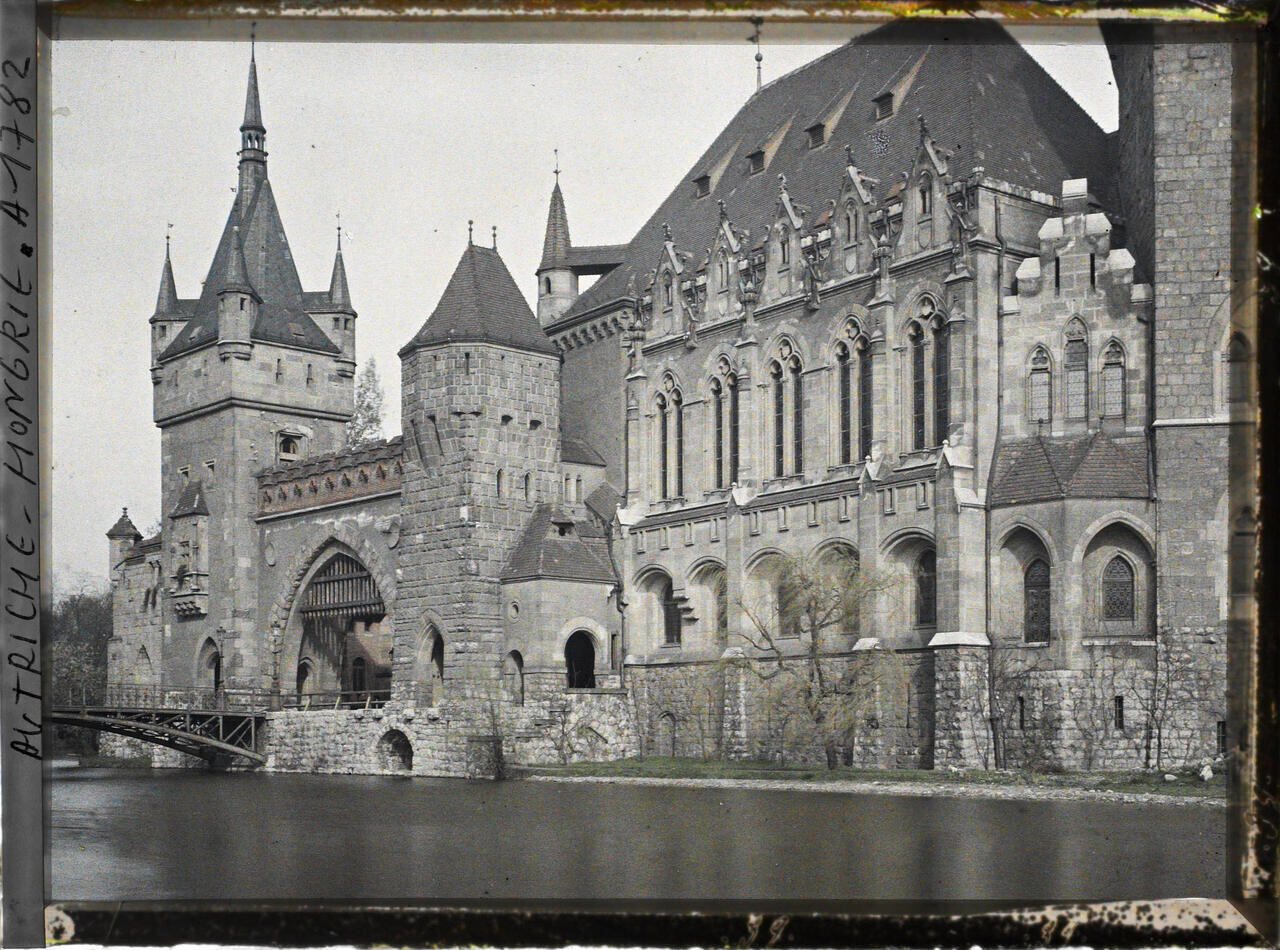
Auguste Léon in Budapest
The footage was shot by nine photographers and three filmmakers (183,000 metres of film tape survive) from Brazil to Scandinavia, showing historical events, cities, old trades, rural and urban life. The collection has been managed by the Albert Kahn Museum since 1990. Most of the well-preserved colour photographs are available online.
At the beginning of the 20th century, pictures were also taken in Budapest, including of the Elisabeth Bridge, the Museum of Applied Arts, the Chain Bridge, the Parish Church in the city centre, the Vajdahunyad Castle and the city centre. You can also see these photos on the French museum’s website.
